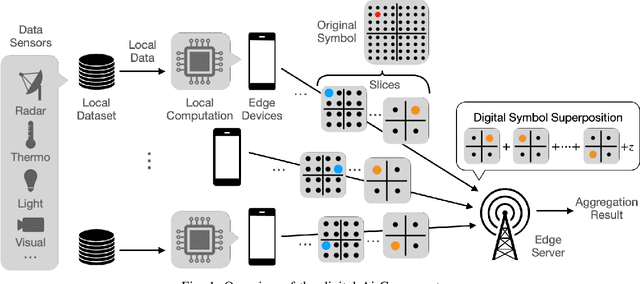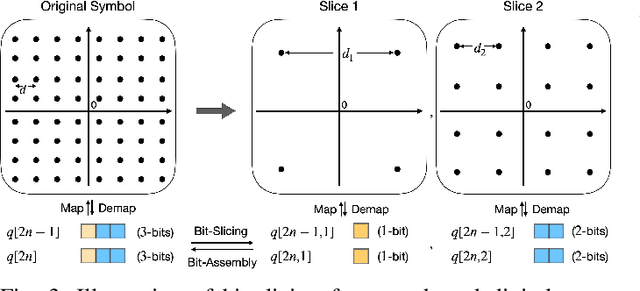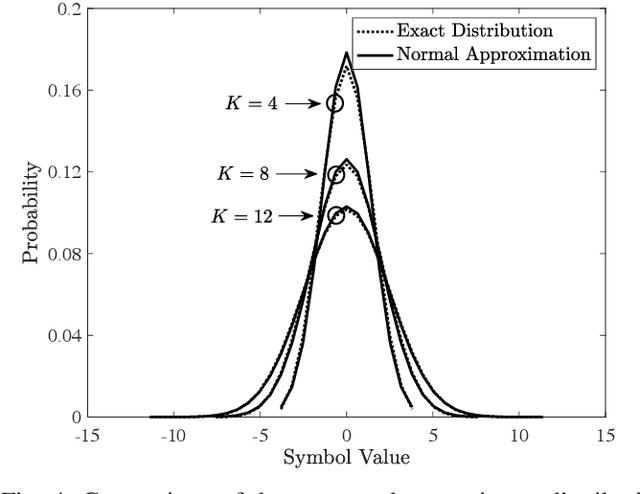Digital Over-the-Air Computation: Achieving High Reliability via Bit-Slicing
Paper and Code
Apr 10, 2024



6G mobile networks aim to realize ubiquitous intelligence at the network edge via distributed learning, sensing, and data analytics. Their common operation is to aggregate high-dimensional data, which causes a communication bottleneck that cannot be resolved using traditional orthogonal multi-access schemes. A promising solution, called over-the-air computation (AirComp), exploits channels' waveform superposition property to enable simultaneous access, thereby overcoming the bottleneck. Nevertheless, its reliance on uncoded linear analog modulation exposes data to perturbation by noise and interference. Hence, the traditional analog AirComp falls short of meeting the high-reliability requirement for 6G. Overcoming the limitation of analog AirComp motivates this work, which focuses on developing a framework for digital AirComp. The proposed framework features digital modulation of each data value, integrated with the bit-slicing technique to allocate its bits to multiple symbols, thereby increasing the AirComp reliability. To optimally detect the aggregated digital symbols, we derive the optimal maximum a posteriori detector that is shown to outperform the traditional maximum likelihood detector. Furthermore, a comparative performance analysis of digital AirComp with respect to its analog counterpart with repetition coding is conducted to quantify the practical signal-to-noise ratio (SNR) regime favoring the proposed scheme. On the other hand, digital AirComp is enhanced by further development to feature awareness of heterogeneous bit importance levels and its exploitation in channel adaptation. Lastly, simulation results demonstrate the achivability of substantial reliability improvement of digital AirComp over its analog counterpart given the same channel uses.
 Add to Chrome
Add to Chrome Add to Firefox
Add to Firefox Add to Edge
Add to Edge